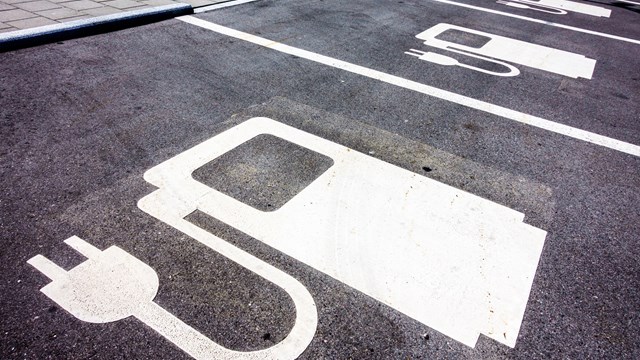
Q. It seems like electric vehicles are all over the roads these days and our board has been getting more requests to install electric vehicle chargers. Does the board have to allow unit owners to install chargers and if so, who pays? Also, how does the board grant permission when the common areas are affected?
— Waiting for Connections
A. “Electric vehicles are not only here to stay, but are poised for further growth in the future,” say Mark Einhorn and Matthew Gaines, partners at Marcus, Errico, Emmer & Brooks, PC, in Braintree, Massachusetts. “Your board is not alone, both in seeing a surge of requests from owners to install chargers, as well as being overwhelmed with how to handle these requests.
“Last year, the Massachusetts legislature enacted an amendment to MGL c. 183A which prohibits condominium associations and homeowners’ associations from banning or unreasonably restricting the installation of charging stations in areas used exclusively by owners. Boston and Cambridge also have regulations that govern requests in addition to the broader state law.
“The following is an overview of the Massachusetts state law that impacts how these requests should be handled as well as the limitations on the control and discretion that boards have:
1. Pursuant to c.183A, §10A, associations cannot ban installations of charging stations in areas used exclusively by owners. The law also prohibits associations from imposing requirements that unreasonably restrict the installations, increase their cost or reduce their efficiency. This could require associations to approve installations that are in common areas or affect them.
2. Defining what are “reasonable” requirements is not always easy. In our opinion, the following requirements are reasonable for Boards to require of Owners:
• Pay all installation and maintenance costs for their charging station, including the cost of any structural modifications required for it;
• Pay for the electricity used to recharge their vehicles, including the cost of installing a separate meter, if necessary, to monitor usage;
• Pay for the removal of the charging station if necessary for the maintenance or replacement of any property of the condominium.
• Pay for any damage to the charging station, common areas or other interests resulting from the installation, maintenance, repair, removal or replacement of the charging station;
• Use a licensed contractor and/or electrician and to meet all federal, state and local legal requirements; and
• Disclose the existence of charging stations to prospective buyers of their units, who will assume responsibility for them.
• Require owners to enter into a written agreement governing the installation and maintenance of the system.
3. Sometimes owners make the request to install a charger that is some distance from the parking area. But running a charging cord above ground over walkways or the parking area can be dangerous. The board can require that the charging cord be installed in a safe manner, and in certain circumstances that may mean requiring the cords to be run through conduit underground. While this requirement may make the installation more expensive, it may be reasonable depending on the circumstances.
4. The law states that the owner shall connect the charger to the owner’s own electric utility account unless a licensed contractor performing the installation deems that to be impossible; in which case, the association shall allow the owner to connect the charger to the common electricity account. If a request requires an owner to connect directly to a common electrical source, boards cannot use that reason to deny the request. However, if a common electrical source is the only option, boards can charge for the use of the electricity.
5. Although use of common electricity can be charged to owners, boards cannot charge a fee for allowing a charger to be installed.”






Leave a Comment